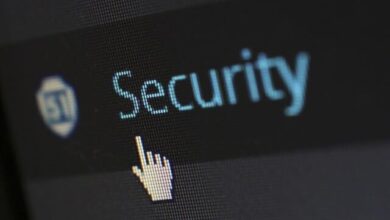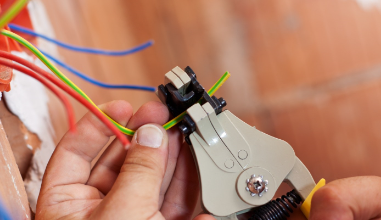Smart Contract Auditing: Tools and Techniques

Smart contracts, which are self-executing contracts with the terms of the agreement directly written into code, are revolutionizing the way we conduct transactions. However, the complexity and novelty of smart contracts introduce potential vulnerabilities that could lead to significant financial losses. This is where smart contract auditing comes in. In this article, we’ll explore the tools and techniques used by smart contract auditors, with a particular focus on tools like the Solidity audit tool and Solana contract scanner, and how these tools are employed in the United States to ensure the security of decentralized applications (dApps).
The Importance of Smart Contract Auditing
Smart contracts operate on blockchain platforms, making them immutable once deployed. This immutability is both a strength and a vulnerability. While it ensures that the contract cannot be tampered with, it also means that any bugs or vulnerabilities present in the contract are permanent. Therefore, it is crucial to ensure that smart contracts are secure before they are deployed.
Why Audit Smart Contracts?
- Security: A small vulnerability in a smart contract can lead to significant financial losses. Hackers can exploit these vulnerabilities to drain funds from a contract, as has happened in several high-profile cases.
- Trust: For decentralized applications to gain widespread adoption, users need to trust that the underlying smart contracts are secure and reliable.
- Compliance: In the United States, regulatory bodies are increasingly scrutinizing blockchain technologies. Ensuring that smart contracts comply with relevant regulations can prevent legal issues down the line.
Tools and Techniques for Smart Contract Auditing
Smart contract auditing is a meticulous process that involves reviewing the code for vulnerabilities, ensuring compliance with best practices, and testing the contract in various scenarios. Below, we discuss some of the key tools and techniques used in the auditing process, focusing on Solidity and Solana, two of the most popular platforms for smart contracts.
1. Solidity Audit Tool
Solidity is the most widely used programming language for developing smart contracts on the Ethereum blockchain. Given its popularity, a range of tools has been developed to assist auditors in reviewing Solidity code.
Key Solidity Audit Tools:
- MythX: A comprehensive security analysis tool for Ethereum smart contracts, MythX uses a combination of static analysis, symbolic execution, and fuzzing to detect vulnerabilities. It is highly regarded in the United States for its thoroughness and effectiveness in identifying issues such as reentrancy attacks, integer overflows, and other common Solidity pitfalls.
- Slither: Developed by Trail of Bits, Slither is a static analysis tool that runs a suite of customizable checks on Solidity code. It provides auditors with insights into the contract’s behavior, highlighting potential security risks. Its ability to integrate with continuous integration (CI) systems makes it a popular choice for developers and auditors in the United States.
- Oyente: One of the first security analyzers for Ethereum, Oyente works by analyzing the bytecode of Solidity contracts. While it has been somewhat overshadowed by newer tools, it remains a valuable resource for identifying vulnerabilities in Ethereum smart contracts.
Audit Techniques with Solidity Tools:
- Static Analysis: This involves examining the contract’s code without executing it to identify potential vulnerabilities. Tools like Slither and Oyente are particularly useful for this purpose.
- Dynamic Analysis: This technique involves executing the smart contract in a controlled environment to observe its behavior. It helps auditors understand how the contract functions in real-world scenarios and identify any potential issues that static analysis might miss.
- Formal Verification: This is a more advanced technique where auditors mathematically prove the correctness of the smart contract code. While formal verification is time-consuming, it provides a higher level of assurance that the contract is secure.
2. Solana Contract Scanner
Solana has emerged as a leading blockchain platform, known for its high throughput and low transaction costs. As more developers build dApps on Solana, the need for robust auditing tools has grown. Solana smart contracts, also known as programs, are written in Rust or C, which requires a different set of tools and techniques compared to Solidity audit tool.
Key Solana Auditing Tools:
- Solana Program Library (SPL) Audit Tools: SPL provides a suite of tools that auditors can use to review Solana programs. These tools focus on ensuring that programs follow best practices and do not contain vulnerabilities that could be exploited by attackers.
- Sealevel Parallelization Scanners: Solana’s unique architecture allows for parallel transaction processing, which introduces new potential vulnerabilities. Specialized scanners have been developed to detect issues related to Sealevel, ensuring that smart contracts can safely leverage this feature.
- Rust Static Analyzers: Since Solana programs are often written in Rust, static analysis tools for Rust, such as Clippy and RustSec, are employed to identify potential issues in the code. These tools are crucial for maintaining the security and integrity of Solana smart contracts.
Audit Techniques with Solana Tools:
- Parallel Transaction Testing: Given Solana’s parallel processing capabilities, auditors must ensure that smart contracts handle parallel transactions securely. This involves testing the contract in various scenarios to identify potential race conditions and other concurrency issues.
- Security Audits of Custom Program Logic: Unlike Ethereum, where most contracts follow well-established standards (e.g., ERC-20), Solana contracts often involve custom logic. Auditors must thoroughly review this custom logic to ensure that it does not introduce security vulnerabilities.
- Comprehensive Code Reviews: Since Solana smart contracts are often written in low-level languages like Rust, comprehensive code reviews are essential. Auditors must have a deep understanding of Rust and Solana’s architecture to effectively identify and mitigate risks.
Best Practices for Smart Contract Auditors
In addition to using the right tools, smart contract auditors must follow best practices to ensure the security and reliability of the contracts they review. Below are some best practices that are particularly relevant in the United States:
1. Code Consistency and Clarity
Auditors should ensure that the smart contract code is consistent and easy to understand. Clear code reduces the likelihood of errors and makes it easier for others to review the contract. Inconsistent code can hide vulnerabilities that might otherwise be obvious.
2. Adherence to Standards
Smart contracts should adhere to industry standards, such as the ERC-20 or ERC-721 standards for Ethereum. Following these standards ensures compatibility with other contracts and reduces the likelihood of introducing vulnerabilities.
3. Thorough Documentation
Auditors should review the documentation provided by developers to ensure that it accurately reflects the contract’s functionality. Inadequate documentation can lead to misunderstandings about how the contract is supposed to operate, potentially introducing vulnerabilities.
4. Independent Testing
Independent testing by a third party is essential for ensuring that the smart contract is secure. This might involve using additional tools or even manual code reviews by a different auditor. Independent testing adds an extra layer of assurance that the contract is free of vulnerabilities.
5. Continuous Monitoring
Smart contract auditing is not a one-time process. Continuous monitoring is essential to detect and respond to any vulnerabilities that might emerge after the contract has been deployed. This is particularly important for contracts that handle significant amounts of value or are widely used in the United States.
The Role of Smart Contract Auditors in the United States
Smart contract auditors play a crucial role in the blockchain ecosystem, particularly in the United States, where the adoption of decentralized finance (DeFi) and dApps is rapidly growing. With the increasing scrutiny from regulators and the growing complexity of smart contracts, the demand for skilled auditors is on the rise.
Challenges Faced by U.S. Auditors:
- Regulatory Compliance: U.S.-based auditors must ensure that the smart contracts they review comply with both federal and state regulations. This can be particularly challenging in the rapidly evolving blockchain space, where legal requirements are often unclear.
- Technological Complexity: As smart contracts become more complex, auditors must stay up to date with the latest developments in blockchain technology. This requires continuous learning and adaptation to new tools and techniques.
- High Stakes: Given the value at stake in many smart contracts, auditors in the United States face significant pressure to ensure that their reviews are thorough and accurate. A single oversight can lead to substantial financial losses and reputational damage.
Opportunities for U.S. Auditors:
- Growing Market: The growing adoption of blockchain technology in the United States presents significant opportunities for auditors. As more businesses and individuals turn to smart contracts, the demand for auditing services is expected to rise.
- Innovation in Tools and Techniques: The United States is at the forefront of innovation in smart contract auditing tools and techniques. Auditors in the U.S. have access to some of the most advanced tools in the world, allowing them to provide high-quality services to their clients.
- Collaboration and Knowledge Sharing: The U.S. has a vibrant community of blockchain developers and auditors, fostering collaboration and knowledge sharing. This collaborative environment helps auditors stay on the cutting edge of the industry and continually improve their skills.
AuditBase: Leading the Way in Smart Contract Auditing
As the demand for smart contract auditing continues to grow in the United States, it’s essential to choose a trusted partner for your auditing needs. AuditBase stands out as a leader in the field, offering comprehensive auditing services that leverage the latest tools and techniques to ensure the security of your smart contracts.




